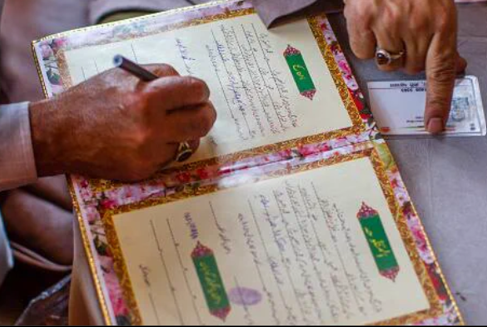South African parliament moves to modify law on Muslim marriage
South Africa's Parliament has released a Bill for public discussion that seeks to modify the legal status of Sharia-compliant traditional Muslim weddings.

South Africa's Parliament has released a Bill for public discussion that seeks to modify the legal status of Sharia-compliant traditional Muslim weddings, news agency PTI reported.
The modifications have been postponed for over three decades after Nelson Mandela's first democratically elected administration promised to address the apartheid-era white minority government's failure to recognise them.
The Constitutional Court previously deemed the apartheid-era Marriage Act and Divorce Act to be incompatible with provisions of the Republic of South Africa's new Constitution. It stated that they do not regard Sharia-law weddings that have not been registered as civil marriages as genuine marriages for any purposes in the country.
The Women's Legal Centre Trust took on the president of the country at the Constitutional Court, which said in its judgment that '' . . . we are concerned about the hardships faced by Muslim Women in a Muslim marriage as a consequence of being excluded from the benefits derived from the Marriage Act and the Divorce Act,'' PTI reported.
The current Acts fail to provide mechanisms to safeguard the welfare of minor or dependent children born of Muslim marriages; and fails to provide for the redistribution of assets on the dissolution of a Muslim marriage when such redistribution would be just. It also fails to provide for the forfeiture of a Muslim marriage's patrimonial advantages at the moment of dissolution in the same or comparable terms as it does for other dissolved marriages.
According to the Bill's preamble, it provides an effective means to resolve the "mischief" identified by the courts, as well as an interim but effective remedy that reacts swiftly to the court's injunctions.
"The Divorce Amendment Bill seeks to amend the Divorce Act to address the Constitutional Court judgement by ensuring the identified gaps in respect of Muslim marriages are closed through the introduction of four new clauses," it said.







